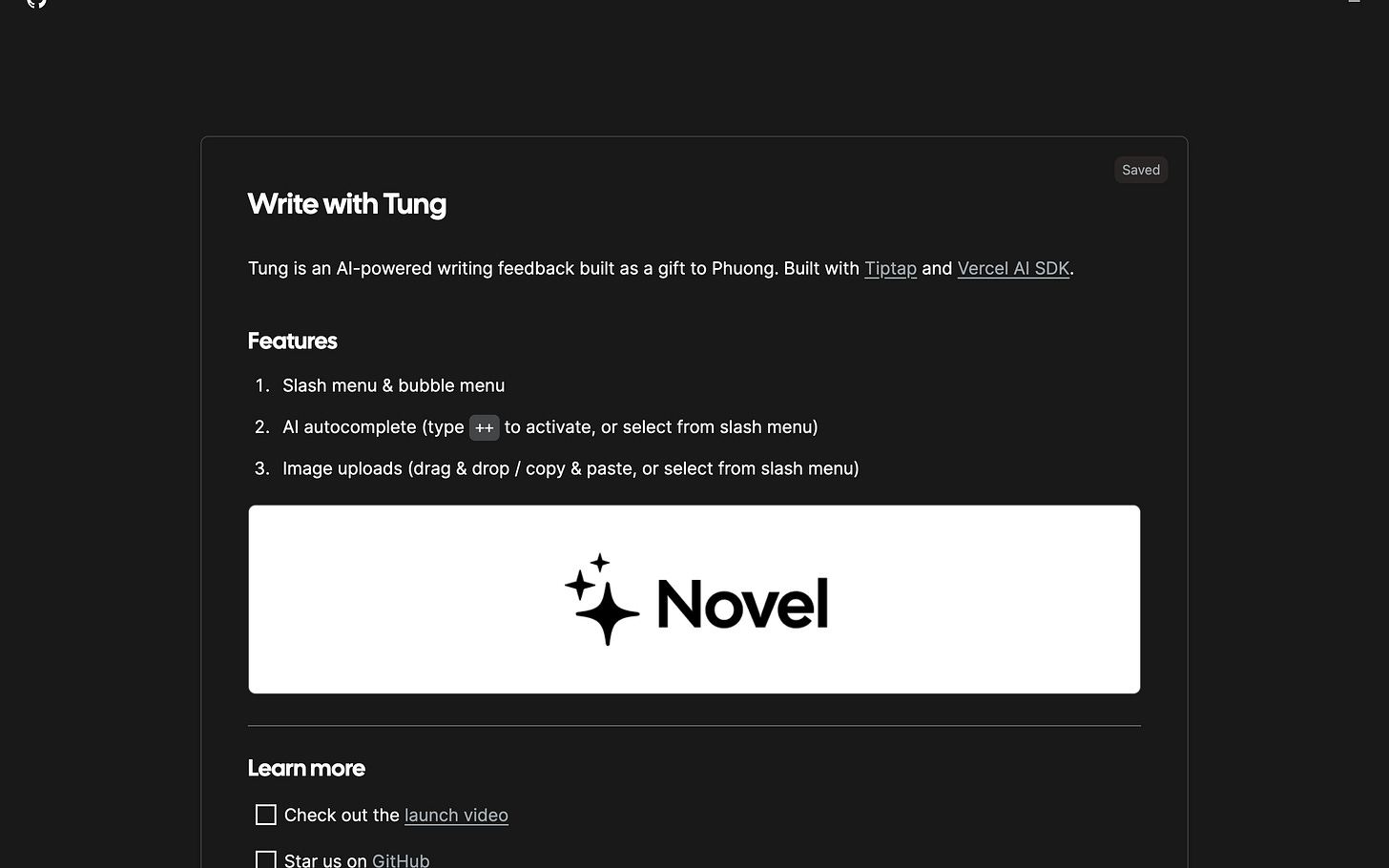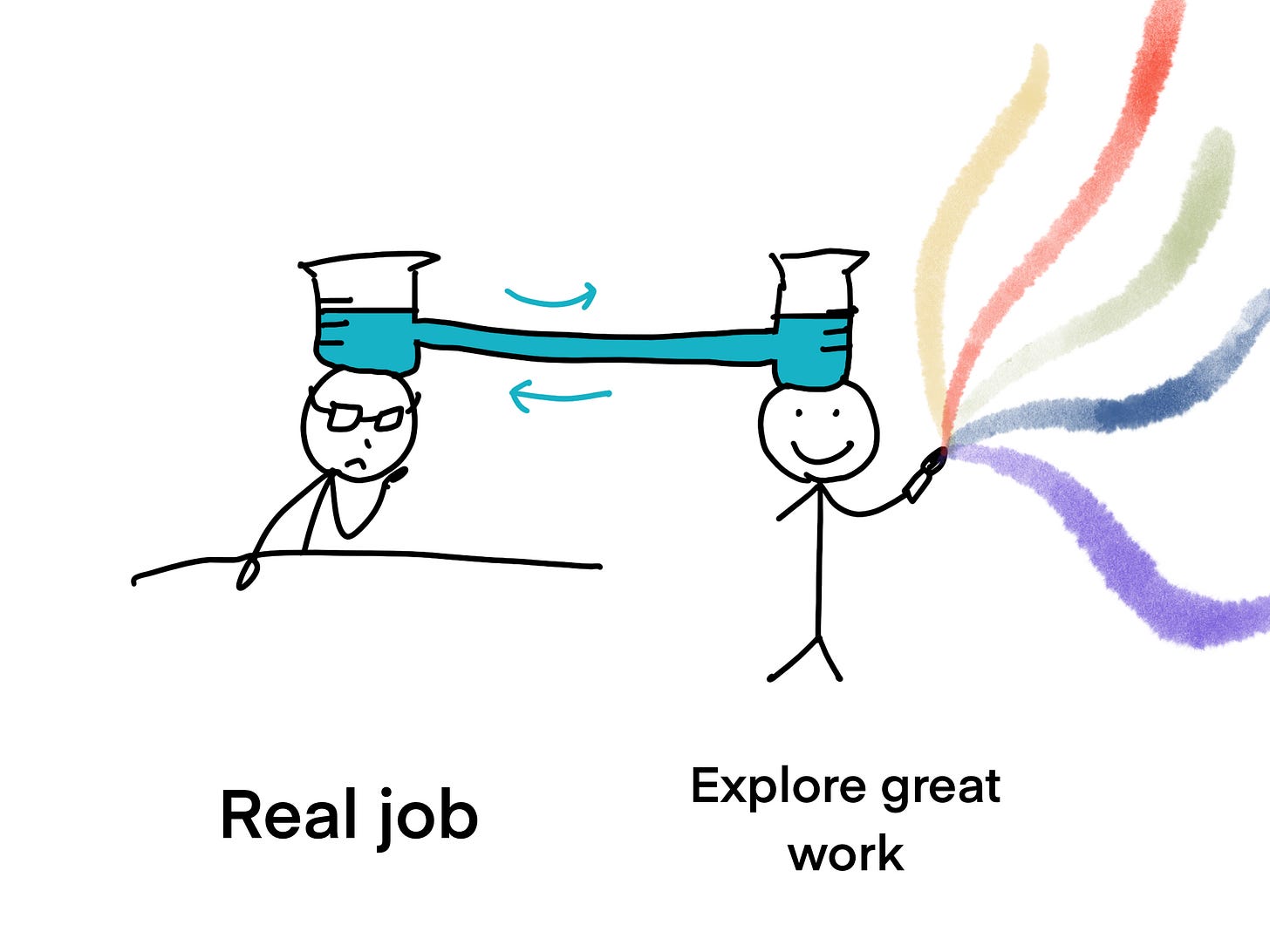In my article titled "#1: How to Do Great Work? - Myth", I discussed my desire to conduct experiments to achieve my own great work. This was what I wrote.
Esther’s great work
My current work manifesto: Enable all of us to learn with curiosity through technology.
Right now, what would it be if you were to work on only one thing that offers the scope to do great work? Write it down: Specifically, I want to learn with my community in a fun or funny way through LLM technology.
What is your biggest blocker in doing great work in this field? Write it down:
I don’t have enough time to do it consistently.
What small (<1 week) experiments can you try to remove that blocker? Brainstorm 3 different ways and write them down:
I want to try creating a customized learning map through LLM.
I can start by breaking my projects down, learning React, and tuning LLM in different weeks.
I can find people interested in AI x Learning to collaborate for 3 hours.
If nothing works out, I will continue writing about what I learned in my week.
Did I start it? Yes, but in a slightly different way.
I realized that my work was taking up a lot of time and energy, so I didn't have much time to write, let alone craft and build a complete project. However, I still made small incremental progress. I joined a builder event called Buildspace, which kept my great work in mind whenever I had mental capacity.
W1 - Aug 6th: Discussed the Buildspace project idea with Trang.
W2 - Aug 13th: Joined the LLM hackathon on LLM fine-tuning.
W3 - Aug 20th: Tried to download and fine-tune my own LLM model.
W4 - Aug 27th: Copied and built an AI writing feedback app interface.
Although most of the work is half-baked or even unsuccessful (e.g. my fine-tuning LLM), I spent around three hours a week thinking and building things related to my great work in an unstructured manner.
On the one hand, my actual work seems to be frustratingly time-consuming, I believe that synergies will soon emerge since my extra learning in LLM can be applied to my work, and vice versa. For example, next week my boss wants me to learn TypeScript and implement my webhook on our Firebase system. Coincidentally, the AI writing app that I'm currently struggling to understand and code is also in TypeScript! Additionally, since I learned how to deploy my entire LLM backend on Google App Engine this week, my mind has started to generate ideas that I can use in my personal projects.
The opposite direction works in a similar way. Even though the LLM hackathon was very tiring, I gained exposure to new LLM fine-tuning technology and ideas that I can potentially use in my work, especially since no one else in my startup knows about LLM. This is a spillover effect. I don't feel like I'm wasting my time doing personal or work-related activities because I know they are strongly tied together and contribute
The next step idea for my great work system
With all this new information about my week, I have new ideas for my building system. Although I don't have time to consistently work on my own projects, I can build based on the sweet spots between my current job and my personal great work. For example, I can build a typescript-based AI feedback app after learning typescript.
Here are two comparisons between my job and my personal great work:
My job: fast-paced with strong and directional learning
My personal great work: slow-paced but with more creative freedom
I have decided not to create a timeline for my project, but to build for happiness and ideas. Nowadays, I don't have any mental barriers to building because I've made it a habit to build every day. Therefore, I can execute freestyle building at a slow pace without putting too much pressure on myself.
What if I'm too tired to continue with my personal great work? You know what? It's totally fine! Because I deserve rest, and I can see that working in my current startup is already close enough to my personal great work.



